Nundkeswarsing Bossoondyal, CEO, United Nations Association of Mauritius…
High time for Mauritius to join the BRICS!
SYMPOSIUM AND PHOTO EXHIBITION – PEACE BEYOND BORDERS • • BUILDING A UNITED FUTURE marking the 80th anniversary of the Victory of the Chinese People’s War of Resistance against Japanese Aggression and the World Anti-Fascist War. Held on 11th October 2025 at Soong Ching Ling Mauritius Reading Space at Port-Louis.
In attendance were: Her Excellency Dr Huang Shifang, Ambassador of PR of China, H.E Mr. Roopun and Mrs Fakim, former Presidents, Mrs V.Bellepeau ex VP, Mrs Hanoomansing ex-Speaker, Mr. Hossenally Lord Mayor of Port-Louis, Judge Lam Shang Leen, and the following members of Parliament: Hon K. Rookny, Hon. Etwareea, Hon. Babajee, and Hon. Ms A. Savabaddy and other personalities and guests. I was invited as a speaker on the UNSDGs by Mr Jean Paul Lam and the New China Foundation leadership. Ms Rufaida Ruhomutally, a member of UNA-MAURITIUS, accompanied me at the function. The function was followed by a delicious lunch at Chinese Restaurant Wei Yane Hotpot.
My presentation-Quote:
On behalf of the United Nations Association of Mauritius, and on my behalf, I extends our sincere congratulations to the Communist Party of China, the Government of the People’s Republic of China, and the entire citizens of China on the occasion of the 80th Anniversary of the Victory of the Chinese People’s War of Resistance against Japanese Aggression and the World Anti-Fascist War. My Youth organization was established in September 1971 as a leftist young people’s organization known as the Socialist Working Youth League of Mauritius, now known as COSYM had always voiced and called for a united China. The organization had always militated among the world progressive forces for a unified China. We still stand for a United China under the command of the Communist Party of China. Honourably quoting here, we maintain excellent relations with UNA-CHINA and work together at international forums.
Thank you all at the New China Foundation for inviting me to address your symposium.
Three topics were allocated to me for presentation and discussion at this symposium of this morning, so allow me to go through.
1. Awareness & First Impressions: “To begin, what is your initial understanding or awareness of the United Nations’ Global Development Initiative (GDI) and its key pillars (such as poverty
reduction, food security, climate change, and digital economy)?”
Awareness & First Impressions (Mauritius Context)
My initial understanding of the United Nations’ Global Development Initiative (GDI) is that it serves as a comprehensive framework aimed at accelerating the realization of the 2030 Agenda for Sustainable Development by fostering inclusive cooperation and shared growth among all nations. The GDI’s core pillars—poverty reduction, food security, climate change, and the digital economy—closely align with Mauritius’ national priorities and ongoing development efforts.
In the Mauritian context:
Poverty reduction remains a crucial area, as the country continues to pursue inclusive economic growth while ensuring that vulnerable groups are not left behind. The GDI’s emphasis on social equity, employment opportunities, and sustainable livelihoods resonates strongly with Mauritius’ social protection and empowerment initiatives.
Food security is an emerging concern, especially in light of climate vulnerability and limited arable land. The GDI’s support for sustainable agriculture, innovation in agri-tech, and regional food supply resilience could significantly strengthen Mauritius’ capacity to achieve long-term food sustainability.
Climate change is perhaps the most pressing issue for small island developing states (SIDS) like Mauritius. Rising sea levels, coastal erosion, and extreme weather events threaten both lives and livelihoods. The GDI’s focus on climate adaptation, renewable energy, and green transition directly complements Mauritius’ national climate strategy and its commitment to achieving a carbon-neutral future.
The digital economy represents a key driver of transformation for Mauritius. As the nation strives to become a knowledge-based and innovation-driven economy, the GDI’s digital pillar aligns perfectly with local efforts to expand access to digital infrastructure, promote e-governance, and empower youth through digital literacy and entrepreneurship.
Overall, my impression is that the GDI offers a strategic opportunity for Mauritius to deepen international partnerships, mobilize knowledge and resources, and enhance its contribution to global sustainable development, while reinforcing its own national resilience and competitiveness.
2. Priority Alignment: “The GDI prioritizes several areas like climate action and digital development. From your perspective, which of these pillars is the most critical for Mauritius at this moment, and why?”
1. Context of GDI Priorities
The Global Development Initiative (GDI) of the United Nations emphasizes integrated development across several pillars, including:
Climate action – addressing environmental sustainability, resilience, and adaptation to climate change.
Digital development – promoting digital infrastructure, innovation, and inclusion.
Poverty reduction – tackling economic inequalities and improving livelihoods.
Food security and sustainable agriculture – ensuring access to adequate nutrition.
Education and human capital development – strengthening skills for the modern economy.
These priorities aim to accelerate progress towards the Sustainable Development Goals (SDGs) by focusing on context-specific challenges of each country.
2. Priority for Mauritius
Mauritius is a small island developing state (SIDS) with unique vulnerabilities and opportunities. The two main pillars that stand out as critical are:
a) Climate Action
Vulnerability: Mauritius faces significant climate risks, including rising sea levels, cyclones, coastal erosion, and biodiversity loss.
Economic implications: Tourism, fisheries, and agriculture—all major contributors to GDP—are highly climate-sensitive.
Sustainability: Investing in renewable energy, coastal protection, and resilient infrastructure is crucial to safeguard both the population and economic growth.
Global alignment: Climate action aligns Mauritius with global commitments under the Paris Agreement and the UN’s SDGs (particularly SDG 13: Climate Action).
b) Digital Development
Economic modernization: Digital technologies can enhance productivity, foster innovation, and attract investment in knowledge-based industries.
Social inclusion: Expanding access to digital infrastructure improves education, healthcare, and financial services across urban and rural areas.
Post-pandemic recovery: COVID-19 highlighted the need for digital resilience in governance, education, and commerce.
Global competitiveness: A strong digital ecosystem positions Mauritius as a regional hub for technology and services.
3. Analysis: Which is more critical now?
While both pillars are essential, climate action might be the most urgent for Mauritius at this moment, because:
Immediate environmental threats can disrupt livelihoods and economic stability.
Resilience investments now prevent future costs from natural disasters.
Climate adaptation has cascading benefits for health, agriculture, and tourism.
However, digital development is complementary. For example:
Digital tools can improve climate monitoring, early warning systems, and sustainable resource management.
E-governance and digital finance platforms can support social protection programs.
In summary: Climate action addresses urgent existential threats, while digital development enables long-term growth and resilience. Prioritizing them in tandem—but giving immediate weight to climate action—ensures both survival and sustainable prosperity.
3. Partnership Model: “For the GDI to succeed in Mauritius, what would an ideal partnership between the UN, the Mauritian government, the private sector, and local NGOs look like? What specific strengths would your organization bring to such a partnership?
Partnership Model
For the Global Development Initiative (GDI) to succeed in Mauritius, a multi-stakeholder partnership model would be essential—one that integrates the comparative strengths of the United Nations, the Government of Mauritius, the private sector, and civil society organizations (CSOs).
Such a partnership would operate on the principles of mutual respect, shared accountability, and results-driven collaboration, ensuring that national priorities align with the Sustainable Development Goals (SDGs) and the GDI’s global vision for inclusive and sustainable progress.
1. The United Nations
The UN would serve as the strategic convener and technical advisor, ensuring that the partnership framework adheres to international standards and SDG principles.
Its role would include:
Providing policy guidance and evidence-based frameworks for sustainable development.
Facilitating capacity-building initiatives and South-South cooperation.
Mobilizing international expertise and resources through UN agencies and regional networks.
2. The Government of Mauritius
The Government would act as the policy anchor and coordinating authority, aligning the GDI objectives with national development strategies such as the Vision 2030 agenda and the Nationally Determined Contributions (NDCs).
Its contribution would include:
Establishing enabling policies and legal frameworks for sustainable growth.
Ensuring inter-ministerial coordination across key sectors (environment, digital economy, education, social inclusion).
Providing institutional stability and governance oversight for effective implementation.
3. The Private Sector
The private sector would be a driving force for innovation, investment, and technology transfer.
Their participation would:
Accelerate digital transformation and green economic initiatives.
Promote sustainable business models that balance profit with social impact.
Contribute funding and expertise for entrepreneurship, renewable energy, and job creation in emerging industries.
4. Local NGOs and Civil Society
Local NGOs would play a community-based and advocacy role, ensuring that GDI implementation remains inclusive, equitable, and people-centered.
Their strengths include:
Deep grassroots connections and understanding of local needs.
Expertise in social mobilization, awareness campaigns, and civic education.
Monitoring the social and environmental impact of development projects.
5. The Role of the United Nations Association of Mauritius (UNA-MAURITIUS)
As a civil society organization with a strong UN mandate, UNA-MAURITIUS can serve as a bridge and facilitator between national and international partners.
Specific strengths include:
A longstanding record in UN advocacy, SDG education, and multilateral engagement.
The capacity to mobilize youth and academic institutions for innovation and research in sustainable development.
Experience in organizing multi-stakeholder dialogues and awareness campaigns, fostering understanding of the GDI and SDG frameworks among citizens.
Conclusion
The ideal GDI partnership in Mauritius would therefore be a symbiotic alliance—anchored by government leadership, guided by UN expertise, energized by private-sector innovation, and grounded in civil-society participation.
Together, these actors can advance inclusive growth, climate resilience, and digital transformation, ensuring that Mauritius becomes a regional model for sustainable development under the GDI framework.
However, at this stage, I cannot escape without mentioning that, above all, bilateral cooperation among nations and alliances is a key component. Mauritius had been in trying to accommodate with various blocs. But Mauritius should also need to associate with the emerging economic bloc – the BRICS. Here seems the last era of colonialism and Imperialism to ended.
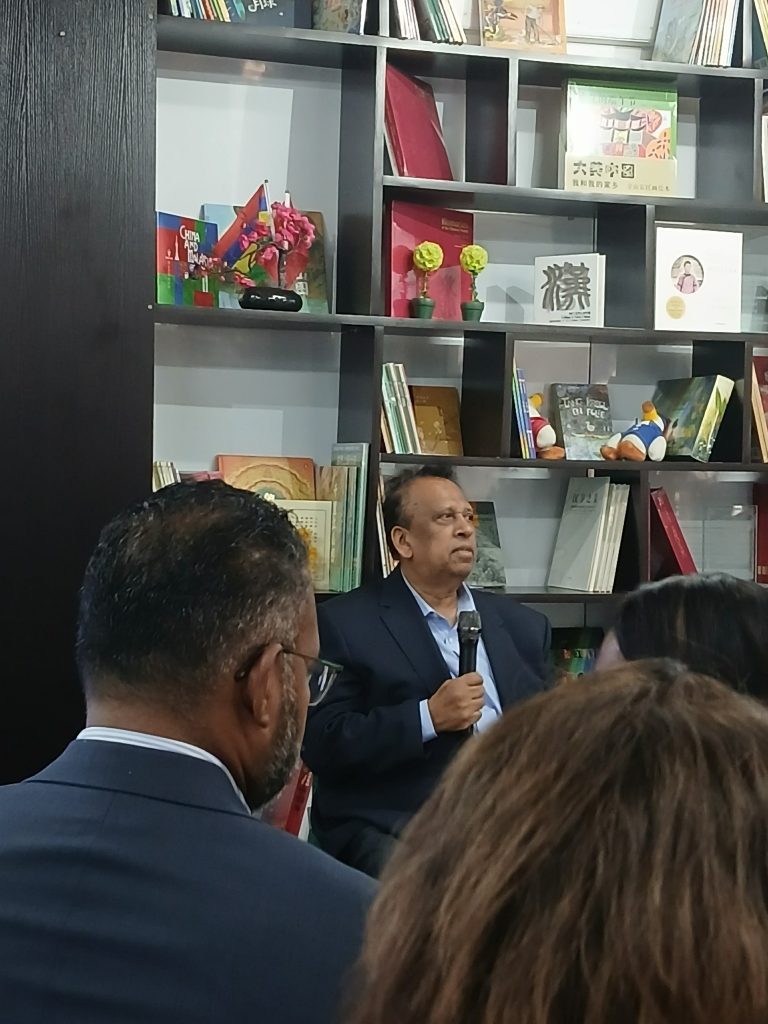
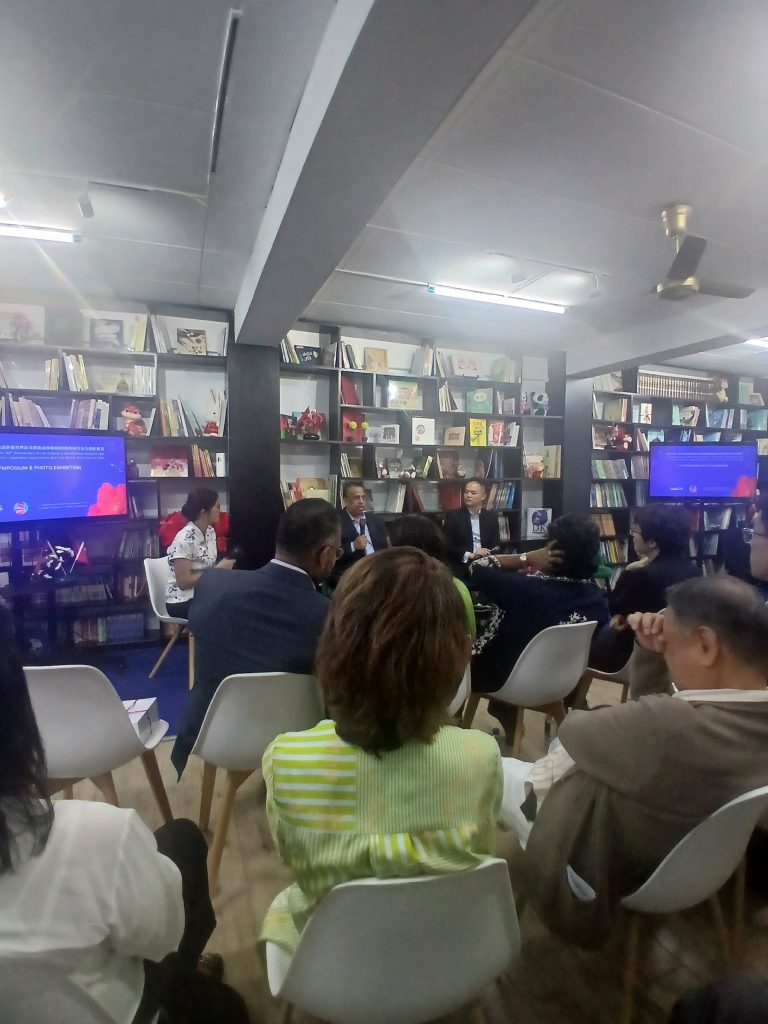
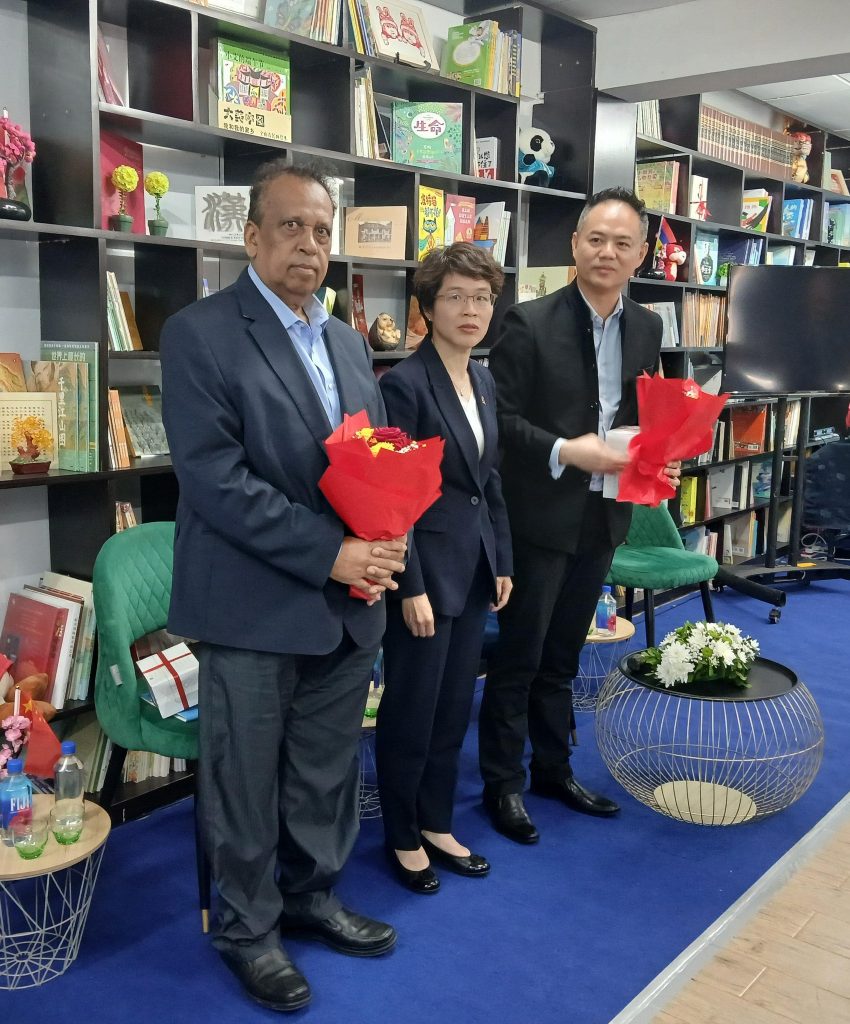
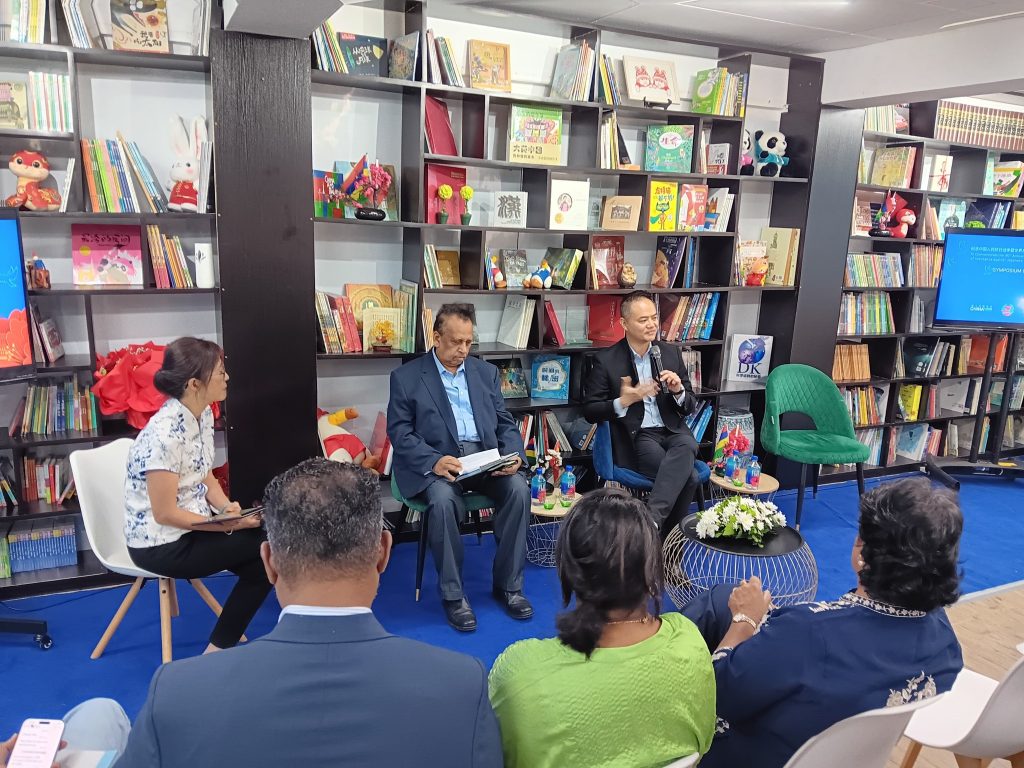
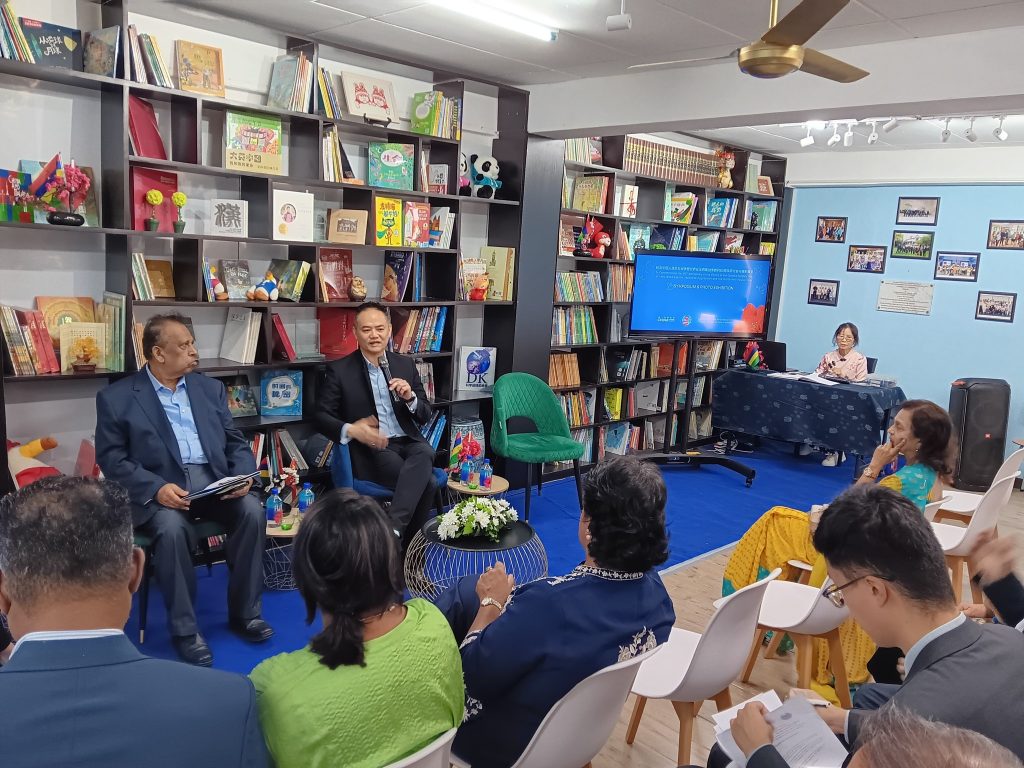
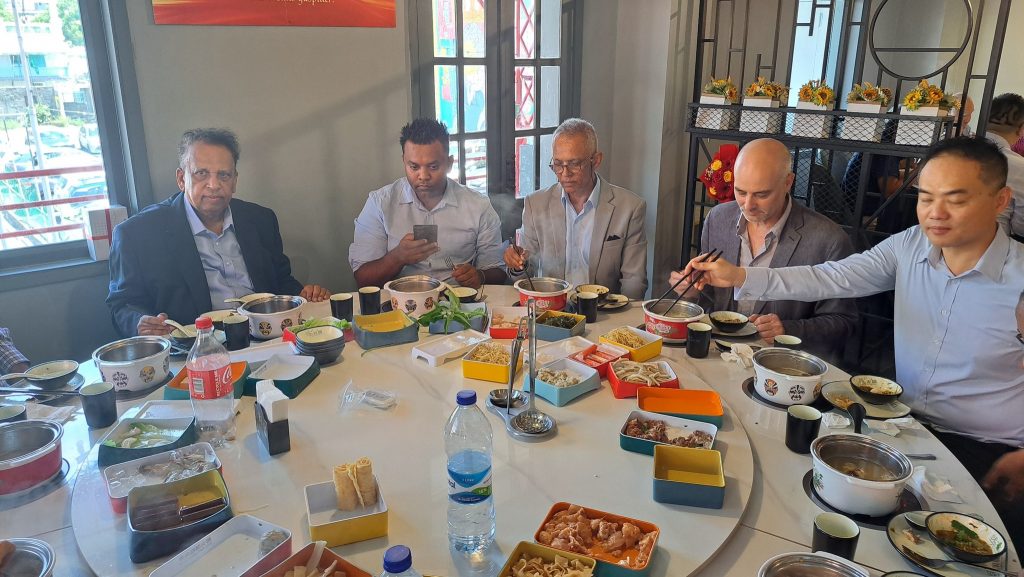
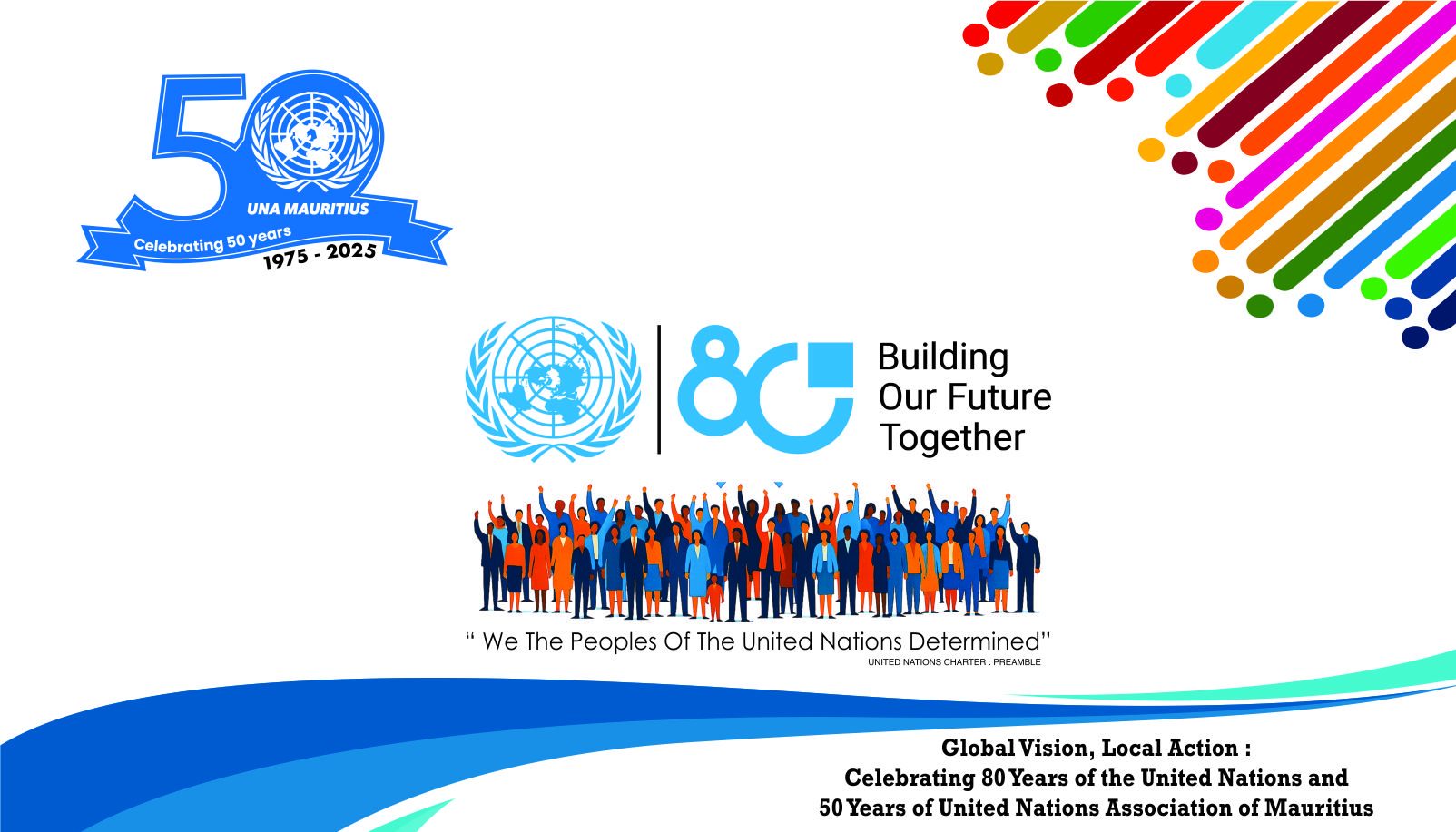




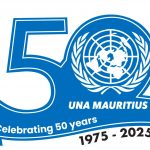
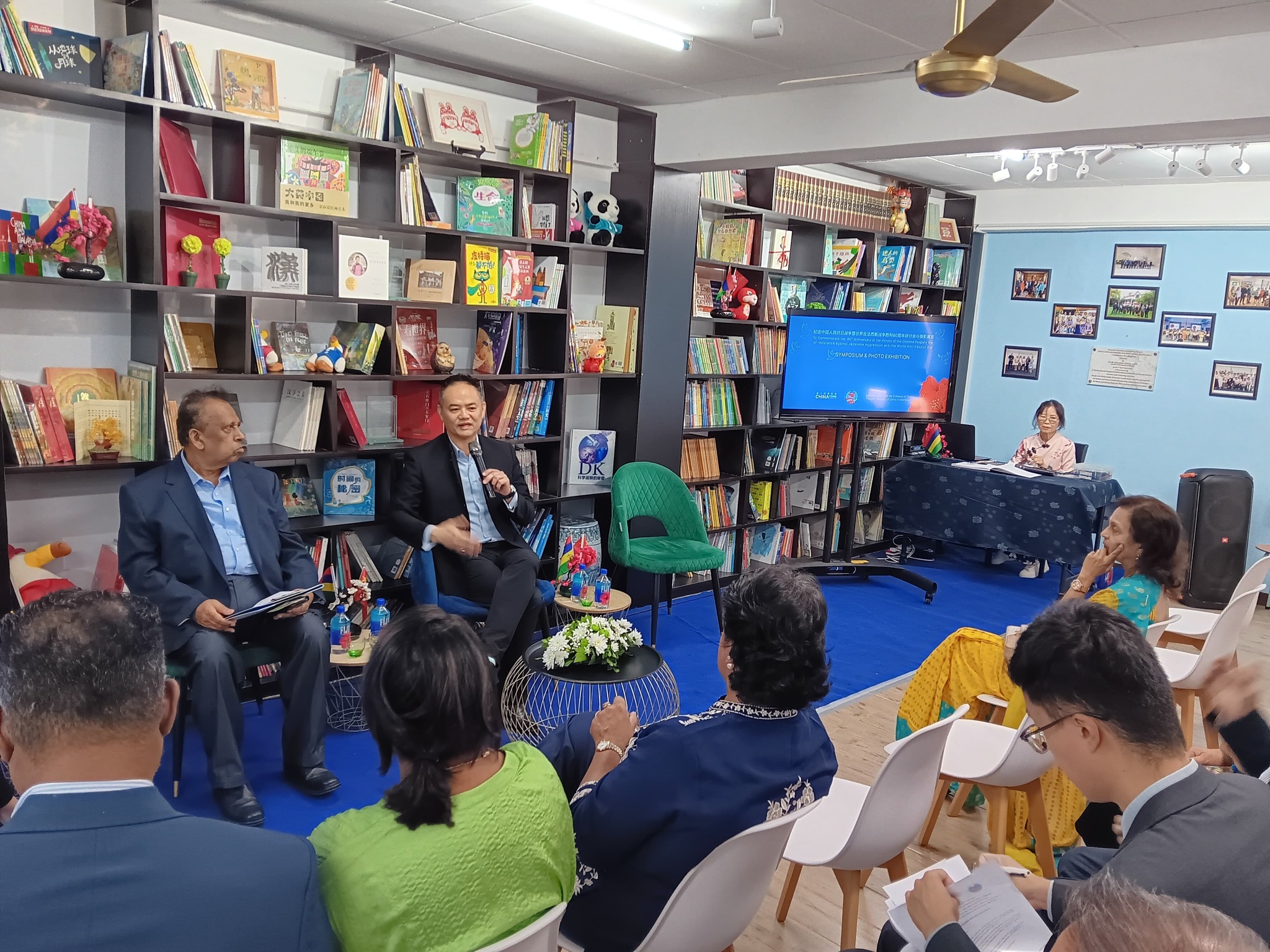
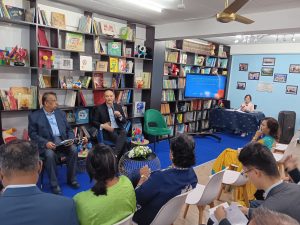


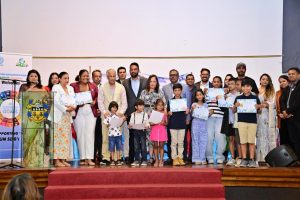
More Stories
AFRO-ARAB YOUTH COUNCIL CONGRESS
World Youth Festival Assembly 2025
International Day of Peace 2025